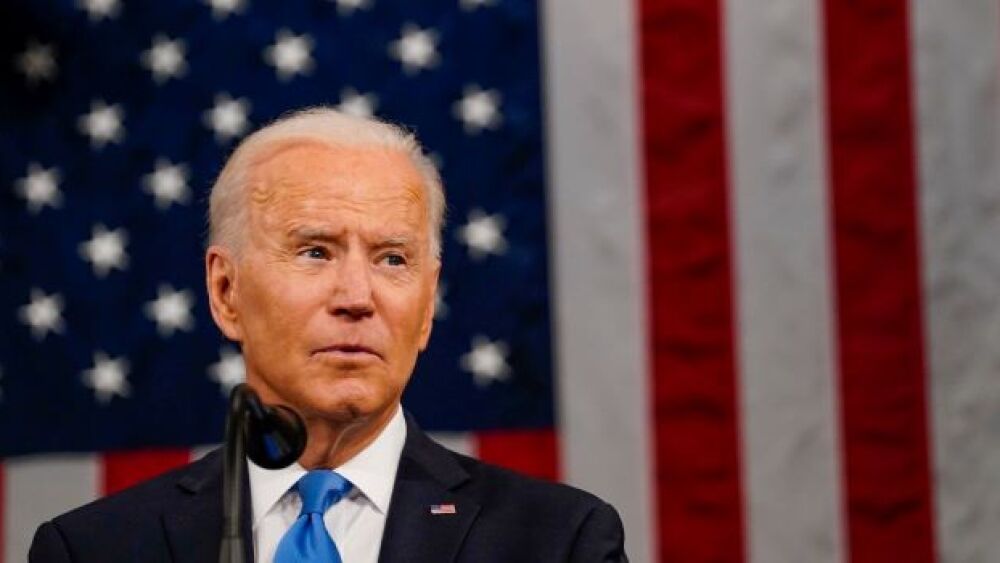President Joe Biden has long promised to stand up to Big Pharma, lower prescription drug prices and limit the power of drugmakers—a pledge he seems intent on keeping.
Is it me, or does the tension between the Biden administration and Big Pharma appear to be rising? Based on the events of the past two weeks, I’d say the White House, Centers for Medicare & Medicaid Services and Federal Trade Commission are ratcheting up pressure on the biopharma industry.
As a cynical observer of American politics, I could easily dismiss the Biden administration’s recent actions as merely posturing for the 2024 presidential election. However, President Joe Biden has long promised to stand up to Big Pharma, lower prescription drug prices and limit the power of drugmakers—a pledge he seems intent on keeping.
Invoking the Inflation Reduction Act, the Biden administration on Thursday said 48 drugs covered under Medicare’s Part B—including those used to treat cancer and fight infections—may be subject to inflation rebates in the first quarter of 2024. The White House noted that dozens of drugmakers will be required to pay inflation rebates back to CMS due to price gouging.
“While Republicans in Congress fight tooth and nail to repeal the Inflation Reduction Act and put money back in the pockets of Big Pharma, President Biden won’t back down from the fight to lower costs for hardworking Americans and make sure every family has access to affordable health care,” the Administration said in Thursday’s announcement. Now that sounds like a campaign speech!
Last week, also in an effort to lower drug prices, the Biden administration said it will issue a framework for the National Institutes of Health to implement so-called “march-in rights” under the Bayh-Dole Act of 1980 to take back patents of specific expensive medicines that rely on federally funded research.
The industry, of course, argues that such intellectual property is critical to giving companies a return on their investment and expedite the development of new drugs. In response to Biden’s announcement, the Pharmaceutical Research and Manufacturers of America (PhRMA) said that seizing patent rights on innovative medicines “would be yet another loss for American patients who rely on public-private sector collaboration to advance new treatments and cures” and that the Biden administration “is sending us back to a time when government research sat on a shelf, not benefitting anyone.”
We also saw the power of the Federal Trade Commission this week. Sanofi on Monday said that following the FTC’s administrative complaint and threat of a lawsuit in federal court it decided to terminate its $755 million license agreement with Maze Therapeutics. Just the threat of litigation was enough to convince Sanofi to throw in the towel—the same day the FTC said it was seeking a preliminary injunction.
The FTC charged that the Maze deal “would eliminate a nascent competitor to Sanofi in Pompe disease drugs, threatening to stall innovation and deprive patients of lower drug prices.” But once again, the biopharma industry had a different take: In explaining its decision to end the deal, Sanofi countered “it would not be in the best interests of patients to contest this litigation” as it would delay “potential advancements that could impact the lives of patients.”
The Biden administration also put pressure on Sanofi and AstraZeneca this week, securing the companies’ commitment to provide 230,000 additional doses of their respiratory syncytial virus (RSV) infant immunization Beyfortus by next month. The White House held many in-person and virtual meetings this month to identify ways that vaccine manufacturers and their partners could make more RSV shots for infants available amid a nationwide shortage.
Based on conversations with anonymous sources, Politico reported that those discussions “at times grew tense” with Biden officials “faulting company executives for underestimating demand for the shots in their initial projections” while “insisting that it would be up to them to ensure the shortfall doesn’t become severe.”
This showdown between the White House and biopharma executives capped off a contentious two weeks between the Biden administration and industry—a policy tone that will no doubt continue in 2024 on a host of issues.
Greg Slabodkin is the News Editor at BioSpace. You can reach him at greg.slabodkin@biospace.com. Follow him on LinkedIn.






